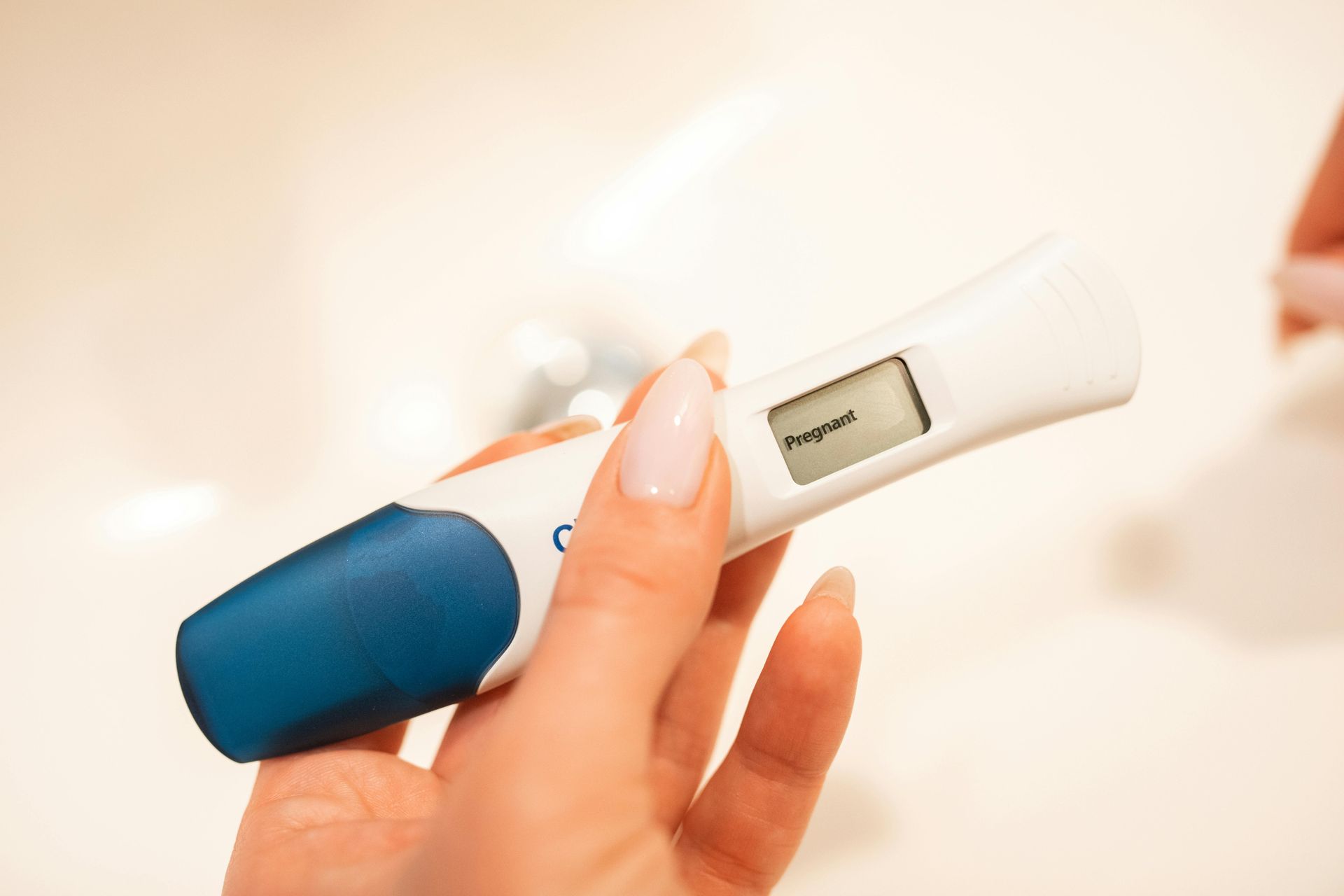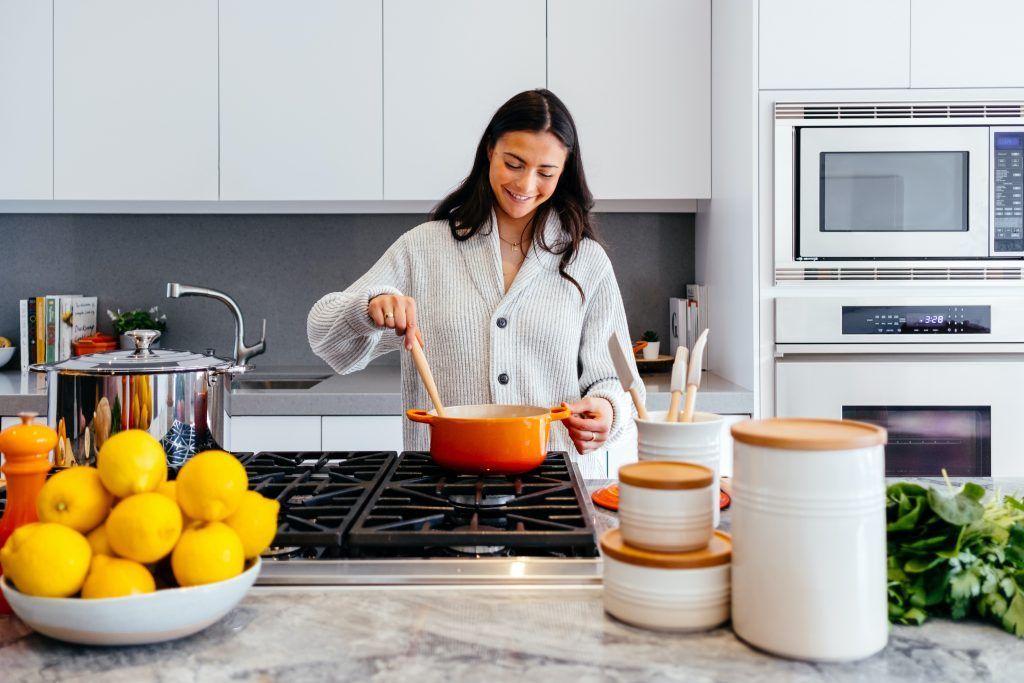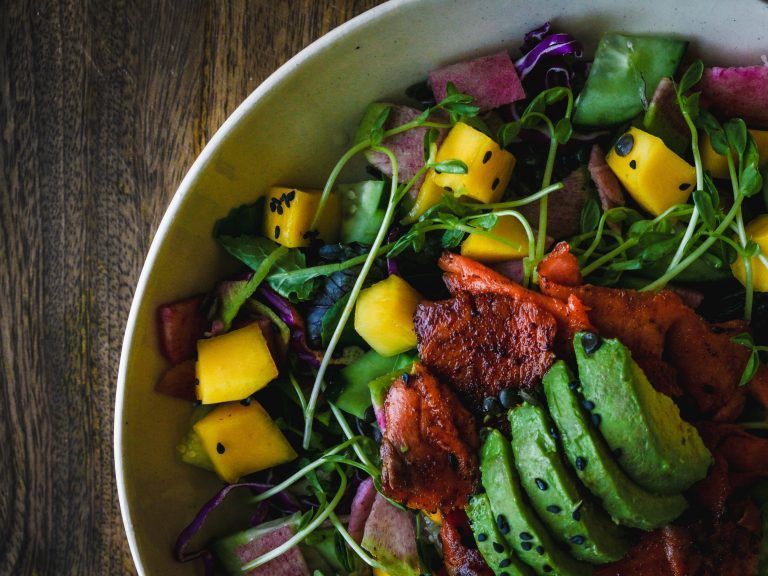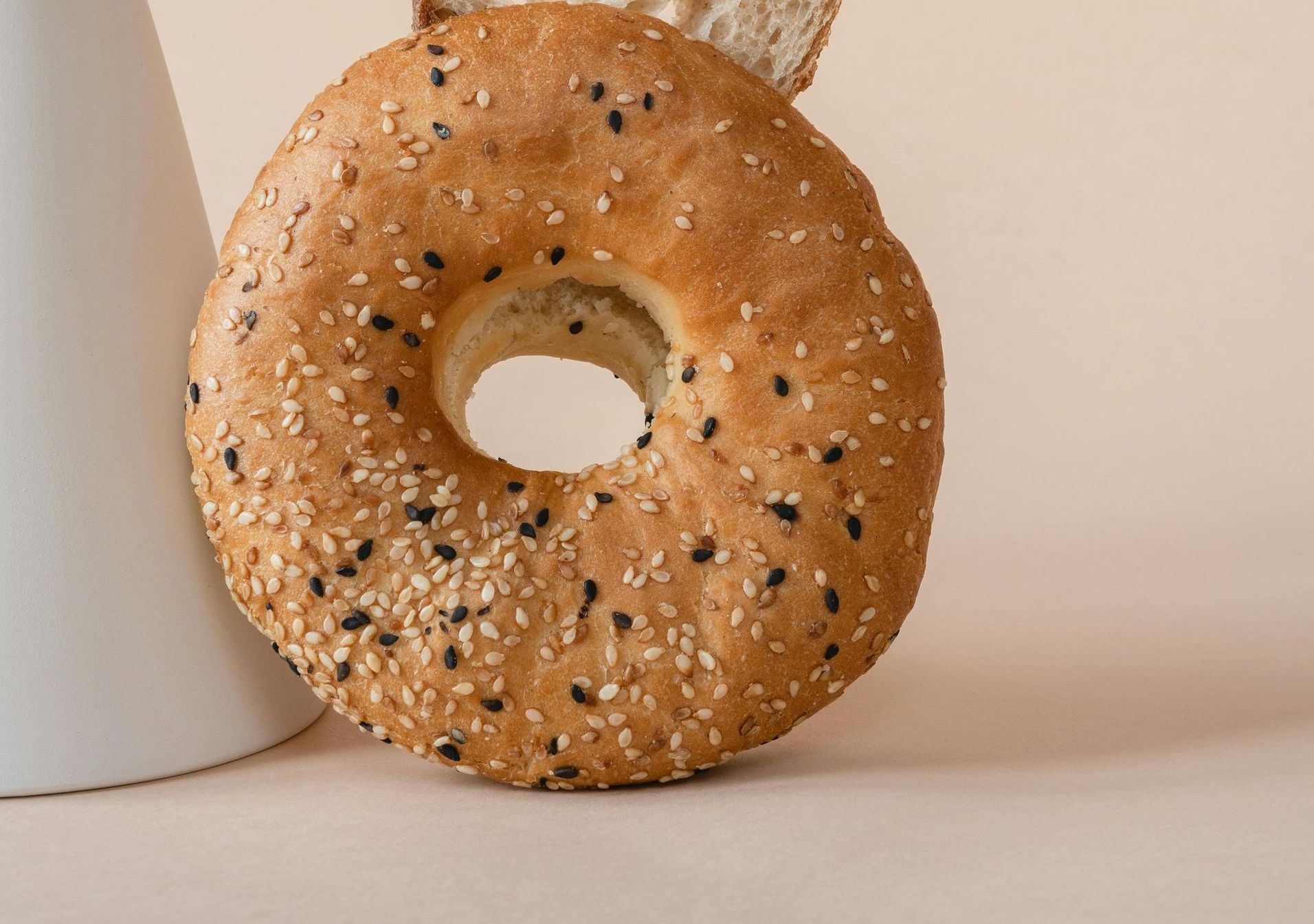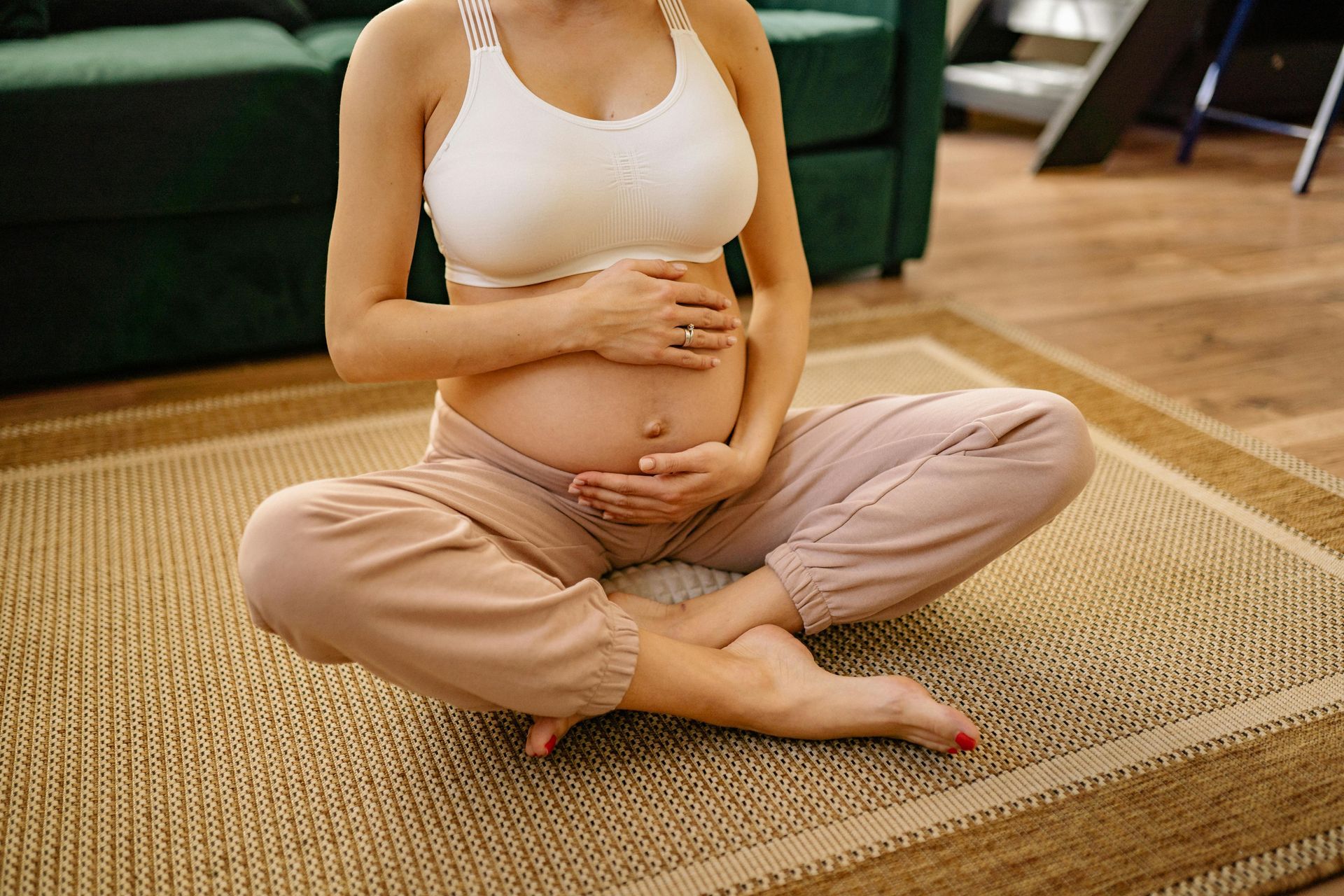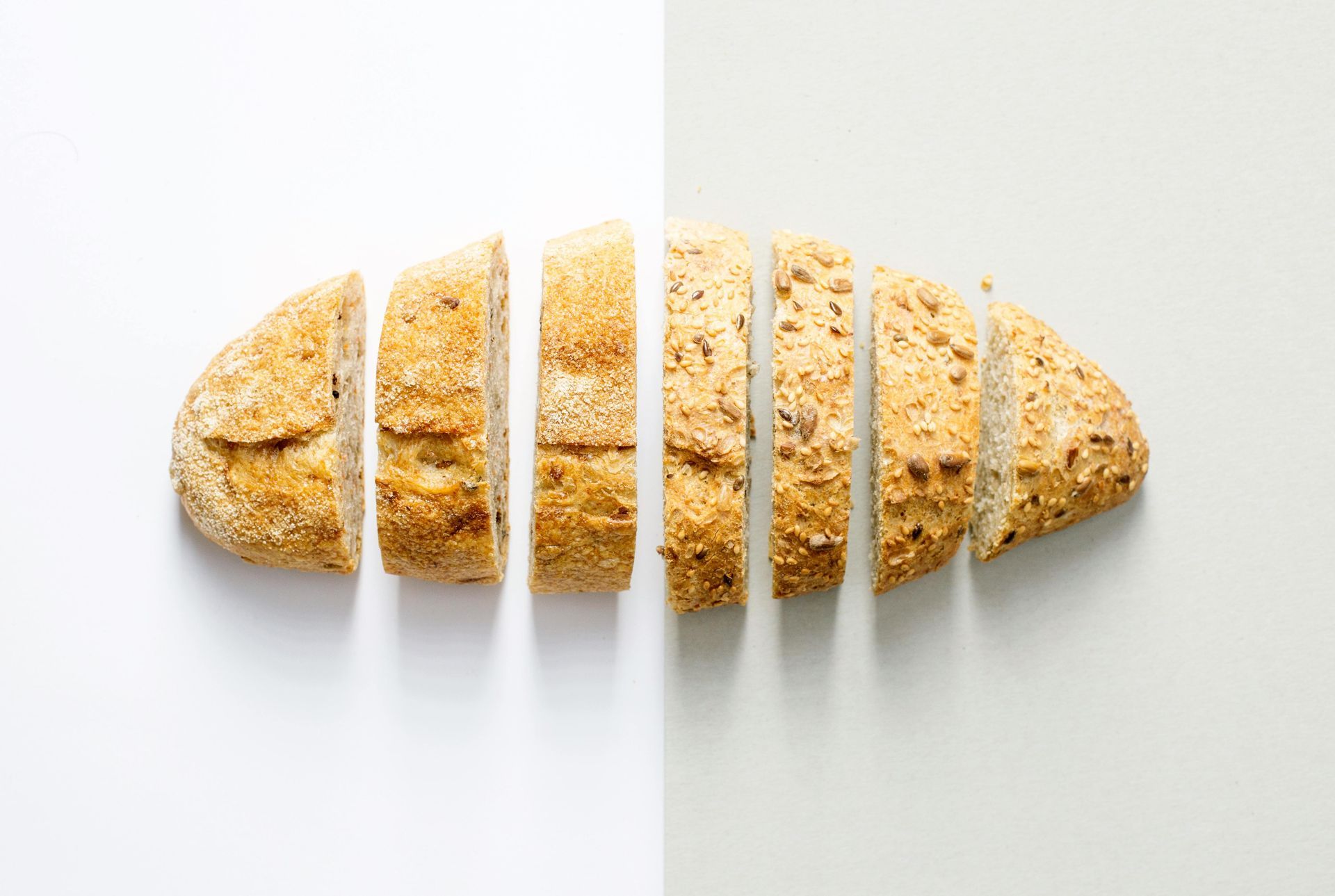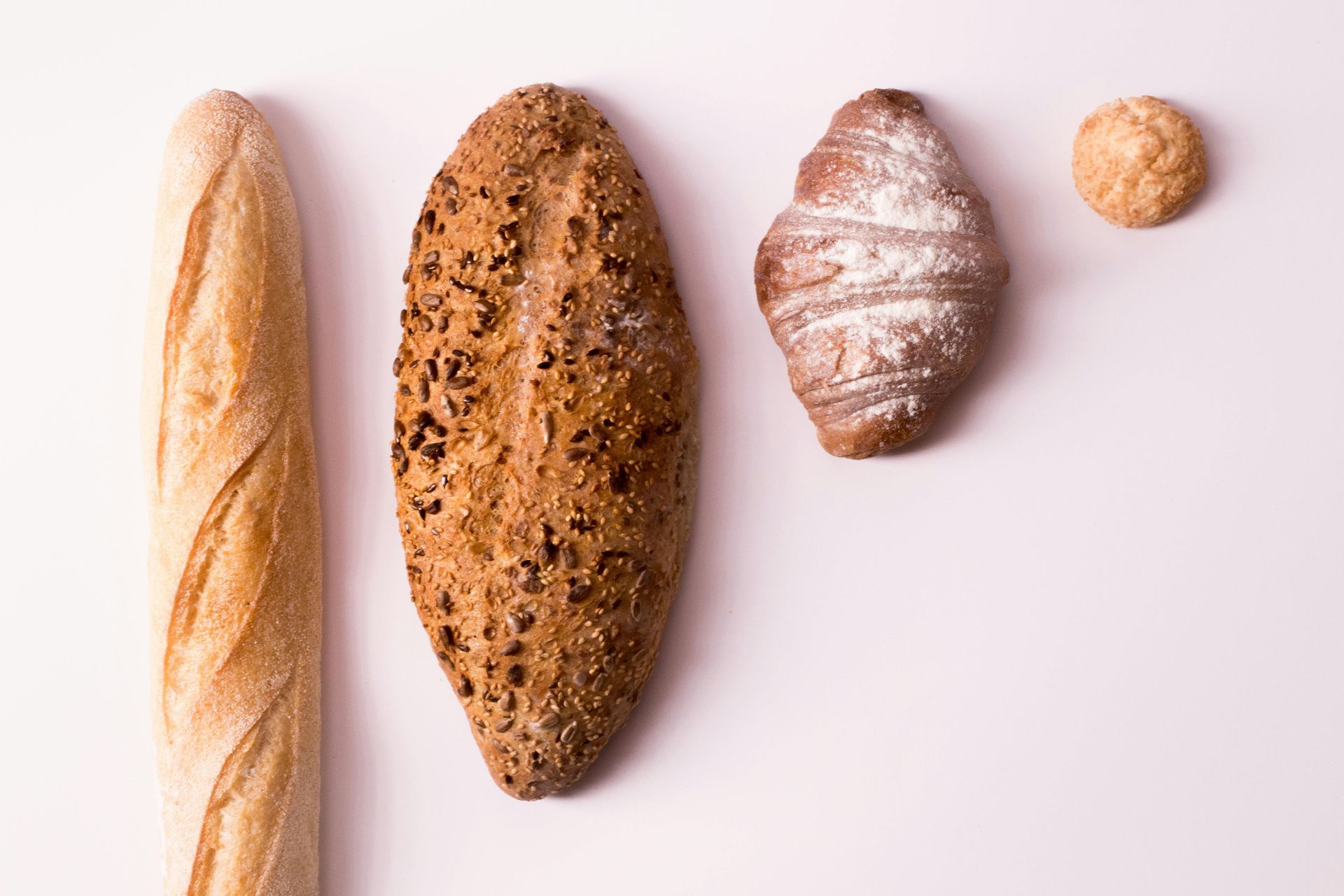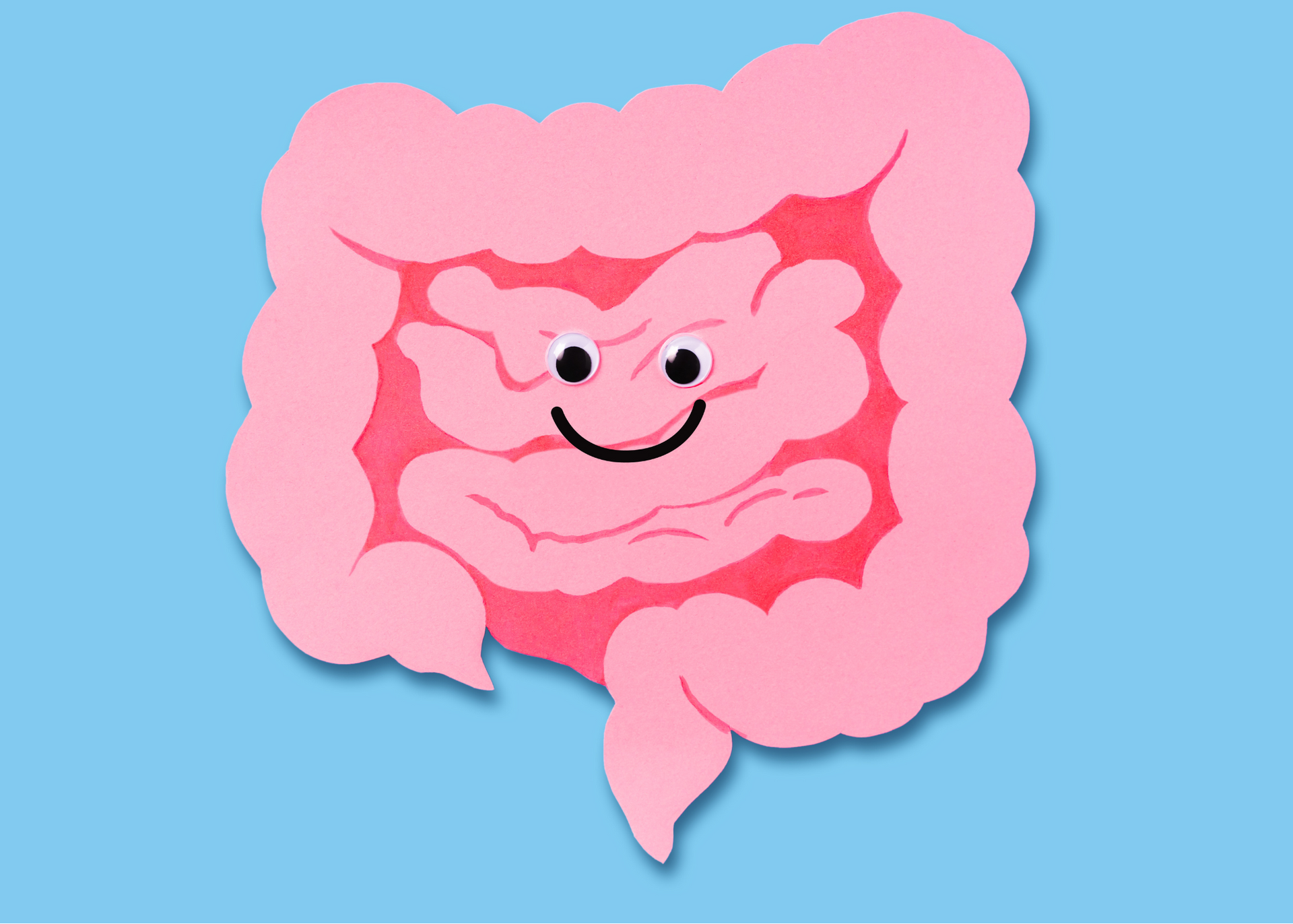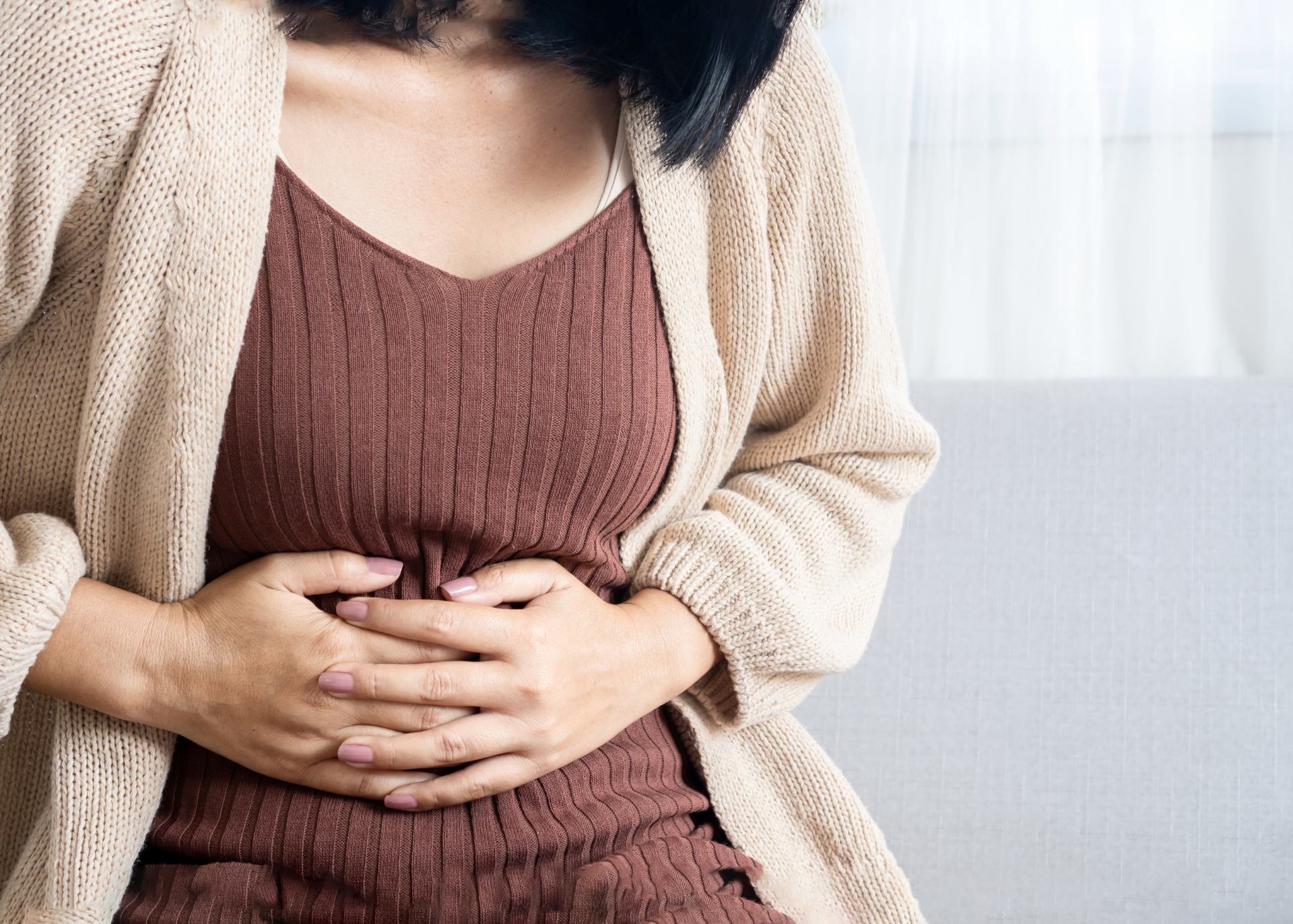The Best Foods for Shrinking Fibroids
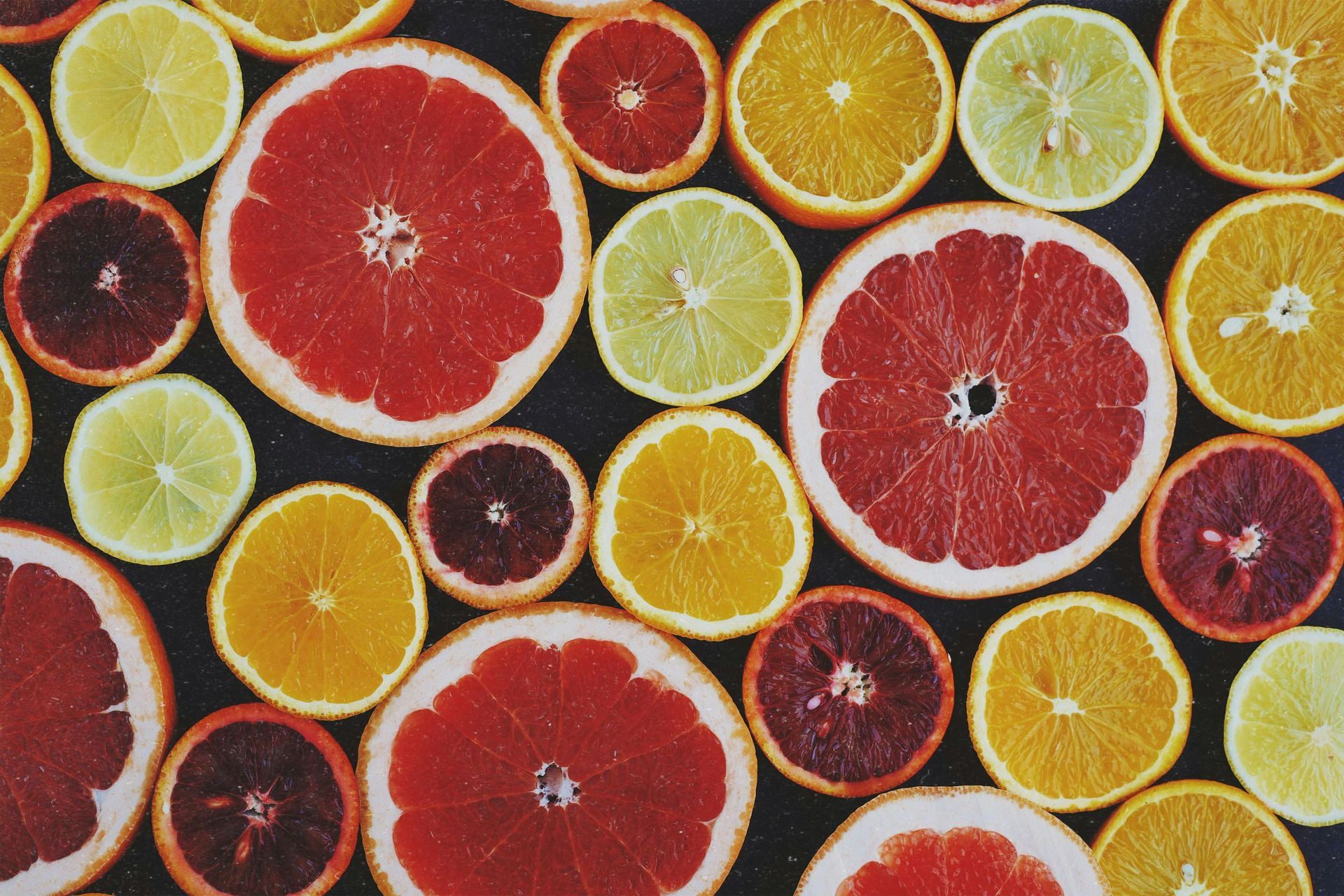
The Best Foods for Shrinking Fibroids
When it comes to shrinking fibroids naturally, food plays a powerful role.
Eating the right foods is a key strategy for preventing fibroid growth, shrinking existing fibroids, and reducing fibroid-related symptoms.
In this post, I’ll cover:
- The three most common drivers of fibroids
- The best foods to shrink fibroids and reduce symptoms
- Fibroid Diet FAQ’s
What Causes Fibroids?
Fibroids are non-cancerous growths that develop within or along the walls of the uterus.
They are made up of smooth muscle and fibrous tissue and can range in size from microscopic to as large as a grapefruit.
To shrink fibroids naturally, it’s essential to understand their root causes.
The three main drivers of fibroid growth are:
- Estrogen dominance: When estrogen levels are too high compared to progesterone (referred to as estrogen dominance), it creates an environment where fibroids thrive. Rebalancing estrogen to progesterone ratios can shrink fibroids and improve symptoms.
- Insulin resistance/unstable blood sugars: Insulin promotes tissue growth, including fibroid tissue, which is why stabilizing blood sugar is so important.
- Inflammation:
Chronic inflammation
encourages fibroid development, and fibroids themselves worsen inflammation—a frustrating cycle. Lowering inflammation can improve symptoms and help shrink fibroids, which helps lower inflammation further.

The Best Foods to Shrink Fibroids
The best foods for shrinking fibroids address three main drivers of fibroid growth. They improve estrogen dominance, stabilize blood sugars, and reduce inflammation.
Some of the foods improve one or two drivers, but many improve all three.
Let’s dive into what to eat (and why)!
Slow-Burn Carbohydrates
Slow-burn carbs are unprocessed carbs that are still in their natural form. These carbs provide a steady energy source, provide fiber (we’ll chat more about that in a later section), support thyroid health, and prevent big spikes in blood sugar and insulin.
Make sure you pair slow-burn carbs with fiber, protein, and fats to stabilize blood sugars even further. For example, instead of eating an apple by itself, pair it with almond butter or grass-fed cheese.
What to eat: Sweet potatoes, butternut squash, acorn squash, beans/lentils, rice, quinoa, oats, and fresh fruit.
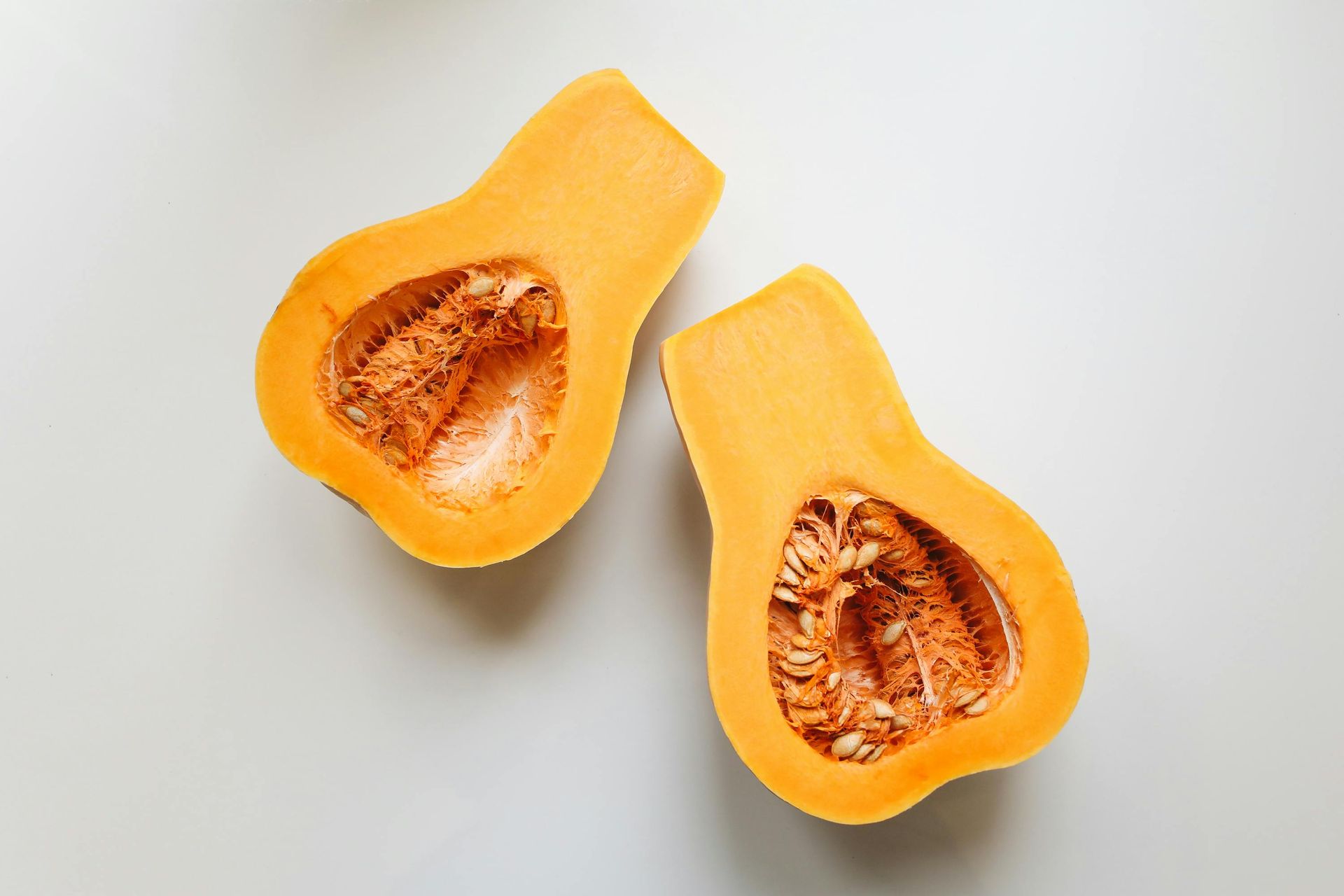
Liver-Supporting Foods
The liver is your estrogen detoxification powerhouse.
Eating foods that boost liver health helps the liver break down excess estrogen into forms that are easier to remove from the body, which improves estrogen dominance and fibroids.
What to eat: Garlic, artichokes, beets, cranberries, and salmon.
Cruciferous Vegetables
Cruciferous vegetables contain specific phytonutrients like glucosinolates (GSLs), isothiocyanates (ITCs), flavonoids, and polyphenols that support estrogen detoxification in the liver and lower inflammation throughout the body.
What to eat: Broccoli, cauliflower, asparagus, arugula, Brussels sprouts, cabbage, kale, bok choy, and radish.
High-Fiber Foods
Fiber binds with excess estrogen, allowing for transport out of the body. Adding more fibrous foods to your diet is a key strategy for rebalancing estrogen and reducing fibroid symptoms, as well as other symptoms of estrogen dominance.
Fiber also slows digestion as well as carbohydrate absorption, which effectively stabilizes blood sugars.
What to eat:: Beans/lentils, raspberries, blackberries, avocados, oats, chia seeds, ground flax, and vegetables, especially broccoli, Brussels sprouts, carrots, asparagus, peas, beets, and artichokes.
This
chia seed pudding is one of my favorite ways to boost my fiber intake. Clients love it too!
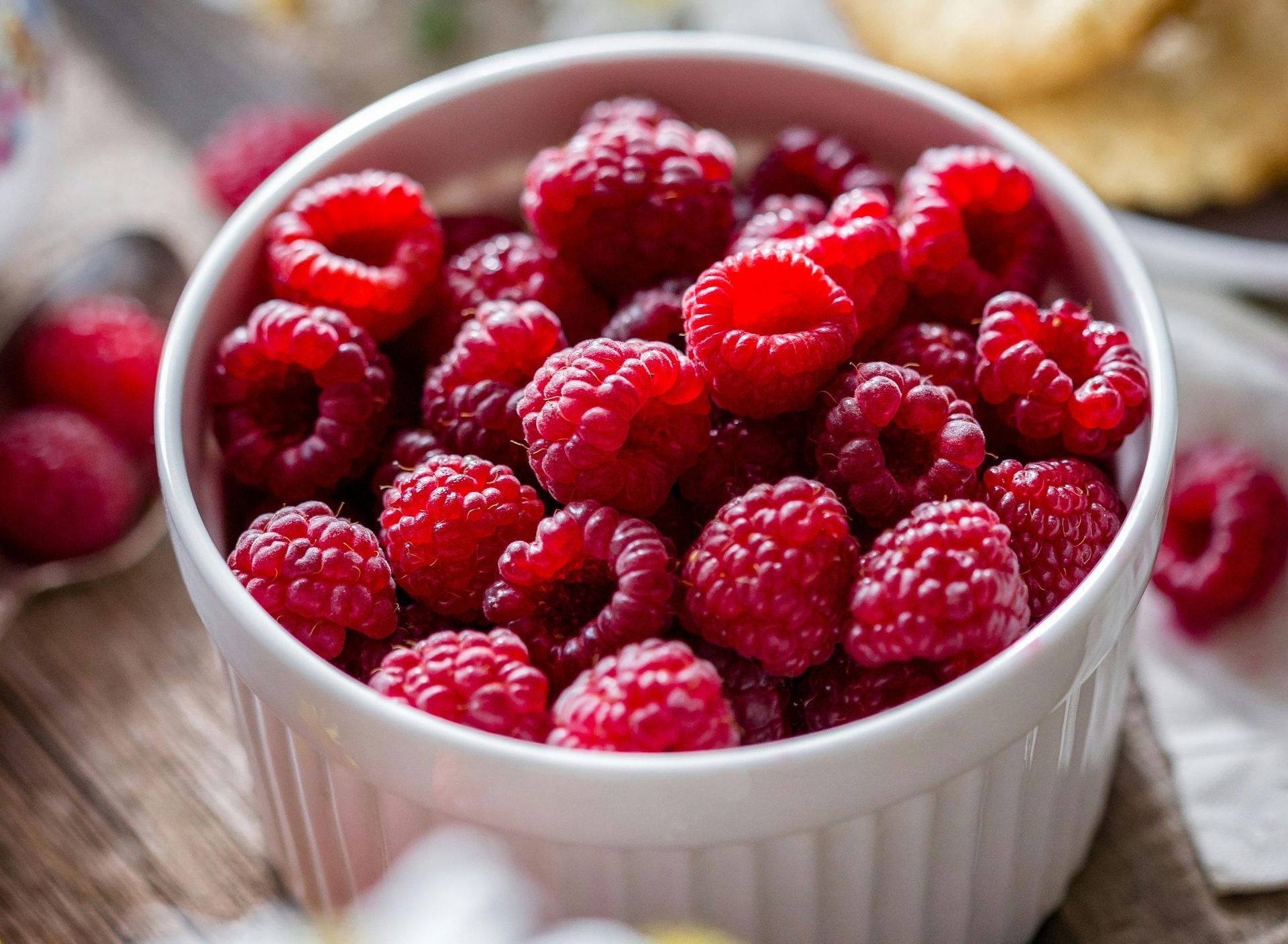
Anti-Inflammatory Foods
The standard American’s diet is high in omega-6’s and low in omega-3’s, which promotes inflammation. A 1:1 ratio is ideal. The average American’s diet is a 17:1 ratio!
Eating more omega-3 rich foods like salmon and chia seeds, and less omega-6 foods like seed oils, helps balance your omega-3 to omega-6 ratio which lowers inflammation.
Other anti-inflammatory foods supply inflammation-reducing compounds like lycopene, oleocanthal, catechins, flavanols, and polyphenols.
What to eat: Salmon, barramundi seabass, chia seeds, ground flax seed, hemp seeds, purple foods (cabbage, beets, berries, radicchio), turmeric, ginger, olive oil, dark leafy greens, green tea, dark chocolate, tomatoes, citrus, and bell peppers.
The Worst Foods to Fibroids
Eating foods that shrink fibroids is only half of the equation when it comes to shrinking your fibroids and improving your symptoms.
It’s just as important to avoid foods that worsen fibroids and create hormonal imbalances too.
Check out
this blog
[hyperlink to prev blog] to learn which foods to avoid.
Comprehensive Fibroid Support
At Plate and Canvas, we provide comprehensive evaluations and natural alternatives to rebalance hormones, shrink fibroids, and reduce fibroid symptoms.
Click
here to learn more about our comprehensive online Restore Program, and click
here to learn about our one-on-one consultations for more personalized strategies.
Fibroid Diet FAQ’s
Is green tea good for fibroids?
Yes, research shows green tea can help reduce fibroid size and improve symptoms of fibroids because it contains an anti-inflammatory compound epigallocatechin gallate (EGCG).
What else can I drink to reduce fibroids?
Make sure you drink lots of water, and consider an electrolyte supplement to enhance hydration. Limit your intake of drinks that contain sugar and/or caffeine like juice, soda, sports drinks, sweet tea, energy drinks, and sweetened coffee drinks.
Can pineapple reduce fibroids?
Pineapple may help reduce fibroids thanks to its bromelain content, an anti-inflammatory enzyme. Make sure you pair pineapple with fat/protein to keep your blood sugars stable.
Can bananas reduce fibroids?
Bananas may help reduce fibroids because of their high potassium content. Research shows a diet high in potassium can help slow fibroid growth and potentially shrink existing fibroids. Make sure you pair bananas with fat/protein to keep your blood sugars stable.
Can I eat eggs if I have fibroids?
Yes, eggs are a great food to incorporate on a fibroid diet because they contain high-quality protein, healthy fats, and various vitamins. Choose pasture-raised eggs for the most benefit.
Is oatmeal good for fibroids?
Oatmeal could be beneficial for people with fibroids because they are high in fiber, but it is important to pair oatmeal with healthy fats and protein to keep blood sugars stable. Eating a savory breakfast like eggs and avocado is a healthier option than a bowl of oatmeal because it is still high in fiber (from the avocado) but does not cause a blood sugar spike like oatmeal can.
What are the signs that a fibroid is shrinking?
You shouldn’t experience any negative symptoms as a fibroid shrinks. Fibroid degeneration, on the other hand, can be painful. This happens when a fibroid outgrows blood supply and dies off, then breaks down. Fibroid degeneration can come with side effects like abdominal pain, pelvic pain, sudden changes in bleeding patterns, spotting, and fever.
What supplements reduce fibroids?
Supplements like quercetin, ECGC, vitamin D, curcumin, calcium-d-glucarate, DIM, magnesium, and omega-3 fish oil can reduce fibroid size and symptoms. It’s important to remember diet and lifestyle makes the biggest difference, and supplements are just a supplemental tool that work synergistically with a healthy diet and lifestyle. Supplements alone won’t shrink fibroids!
Continue Reading
